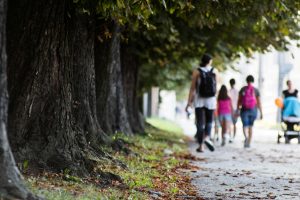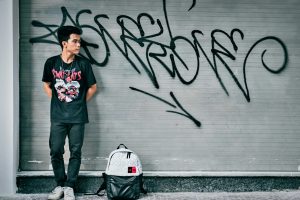Fostering critical thinking in a world of misinformation
In a world where information is easily accessible and spreads like wildfire, critical thinking has become an essential skill. We are bombarded with information from various sources, often conflicting and misleading, making it challenging to decipher the truth. This has created a breeding ground for misinformation, leading to a decline in critical thinking skills among individuals. As a result, fostering critical thinking in a world of misinformation has become a pressing issue that needs to be addressed. In this article, we will delve into the importance of critical thinking and how we can foster it in a world where misinformation is rampant.
The Importance of Critical Thinking
Critical thinking can be defined as the ability to analyze, evaluate, and interpret information in a logical and reasonable manner to form a well-thought-out judgment or decision. It involves looking at all perspectives and questioning the validity of information before accepting it as truth. In today’s digital age, where information is available at our fingertips, critical thinking has become crucial in making sense of the vast amount of information bombarding us.
With the rise of social media and online platforms, misinformation is spreading at an alarming rate. False information, often disguised as facts, can lead to harmful consequences, both individually and collectively. For instance, during the current COVID-19 pandemic, we have seen an influx of misinformation, leading to people ignoring safety measures and causing further spread of the virus. This is where critical thinking comes into play as it enables us to question and verify the authenticity of information before acting on it.
Fostering Critical Thinking
Educating for Critical Thinking
Educating for Critical Thinking
The responsibility of fostering critical thinking skills falls largely on the education system. Unfortunately, critical thinking is often overlooked in traditional education. Schools and universities tend to focus more on memorization and regurgitation of information rather than developing critical thinking skills. To foster critical thinking, education must shift its focus towards developing analytical skills, reasoning, and problem-solving abilities.
It is essential to teach students how to evaluate and question information critically. This can be achieved by encouraging open-minded discussions, encouraging students to think for themselves, and teaching them how to identify biases and logical fallacies. By doing so, we can equip students with the skills to navigate the influx of misinformation in our society.
Encouraging Independent Research
In a world where misinformation is rampant, we must teach individuals how to conduct independent research. This involves teaching them how to verify information from credible sources and cross-check information with various sources. By doing so, individuals can make informed decisions based on facts rather than false information.
Furthermore, we should encourage individuals to question the source of information and consider the author’s motives. Social media platforms, for instance, have made it easier for individuals to share and spread information without proper fact-checking or consideration of its source. By promoting independent research, we can reduce the effects of misinformation in our society.
Developing a Skeptical Mindset
Being skeptical is often viewed as a negative trait. However, in a world of misinformation, it is crucial to be skeptical and question everything. Instead of blindly accepting information, individuals should develop a habit of questioning, analyzing, and verifying information before accepting it as truth. This will not only foster critical thinking but also prevent the spread of misinformation.
In conclusion,
Fostering critical thinking in a world of misinformation is vital for the growth and development of individuals and society as a whole. It enables individuals to think for themselves, make informed decisions, and differentiate between fact and fiction. By educating for critical thinking, encouraging independent research, and developing a skeptical mindset, we can equip individuals with the necessary skills to navigate through the sea of information and combat the effects of misinformation. It is time for society to prioritize critical thinking and address the growing issue of misinformation to create a more rational and informed world.










